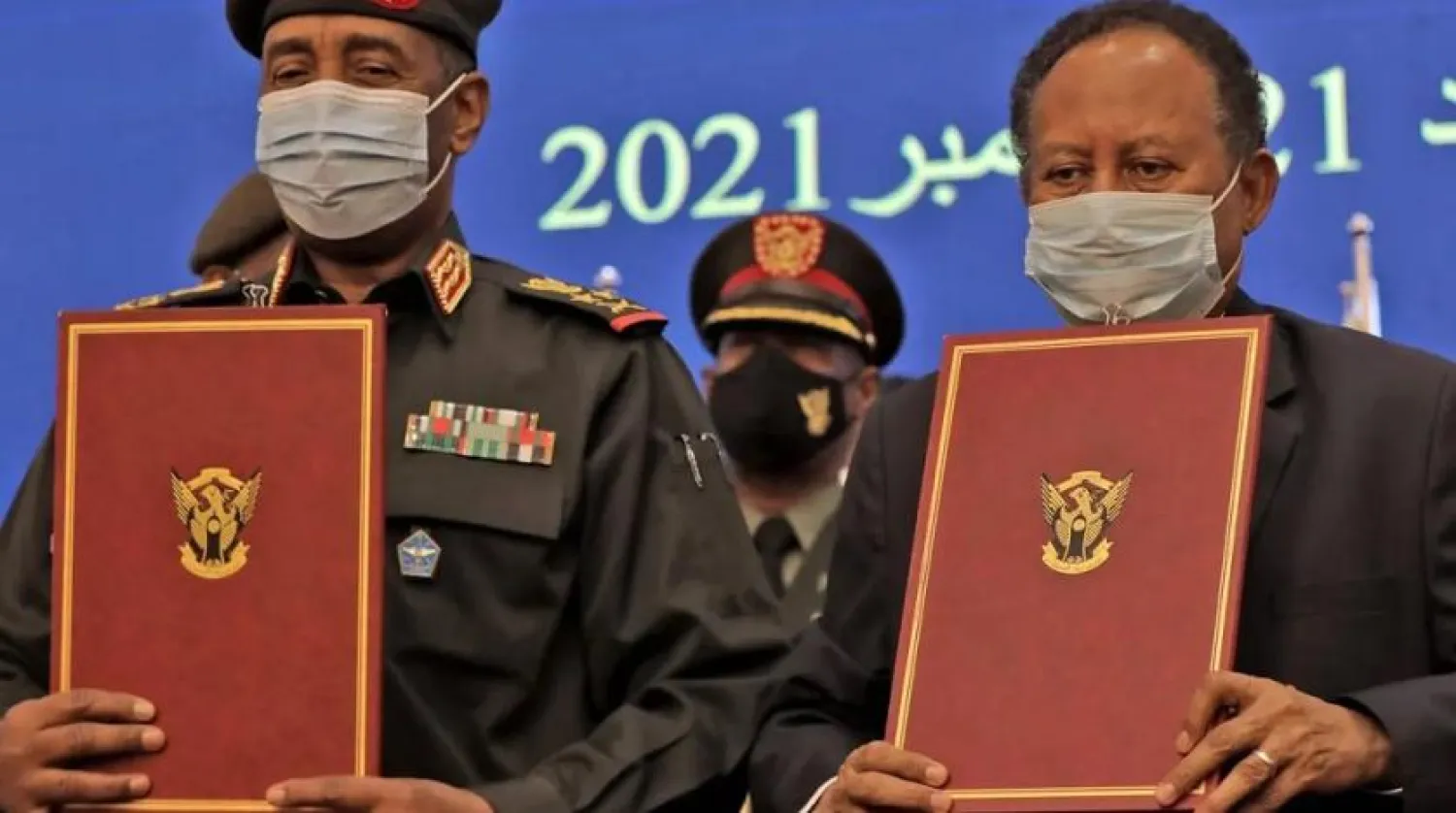The Arab Parliament on Monday welcomed the signing of the political agreement between Sudan's top general Abdel Fattah Al-Burhan, and Prime Minister Abdalla Hamdok.
“This step heralds a new stage for laying the foundations of security, unity and sustainable stability in Sudan, for protecting the political and economic gains of its people, and achieving their aspirations to accomplish development,” the parliament said in a statement.
It also praised the wisdom and responsibility of the Sudanese parties in reaching an agreement that can guarantee the success of the transitional period, in a way that serves Sudan’s supreme interests.
The parliament expressed confidence in the Sudanese people’s ability to overcome the current stage, particularly in light of the constitutional, legal and political agreement that governs the transitional phase.
Secretary General of the Arab Lawyers Union, Makkawi bin Issa, said the agreement reached between political leaders in Sudan is a return to the right political track and to the constitutional declaration of 2019, which represents a unique and serious step towards achieving political stability in Sudan.
“The wise vision of the two signatories to the agreement defused the crisis and it returned Sudan to the roadmap that guarantees a peaceful transitional period during which the Sudanese people can aspire for stability and progress,” Makkawi said.
Nearly a month after Burhan ousted Hamdok, the two sides signed a breakthrough deal Sunday to reverse the military takeover that had sparked international condemnation and mass protests.
The 14-point deal they signed officially restores the transition to civilian rule that had been derailed by the October 25 putsch in the country.









